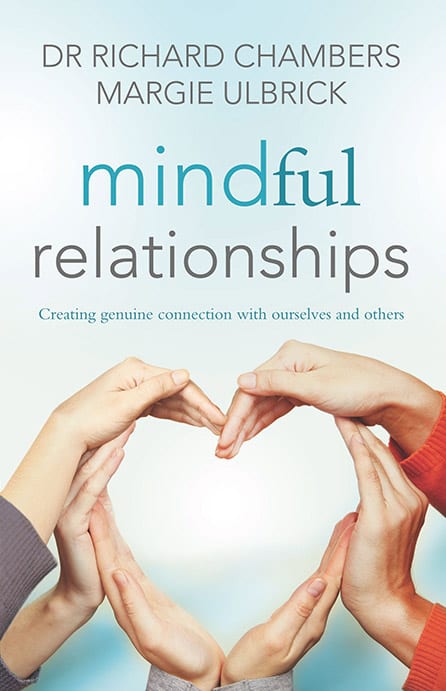Healthy relationships - Why some fail and others endure
Love and intimacy — our ability to connect with ourselves and others, is at the root of what makes us sick and what makes us well, what causes sadness and what brings happiness, what makes us suffer and what leads to healing.
If a new drug had the same impact, virtually every doctor in the country would be recommending it for his or her patients. It would be malpractice not to prescribe it.
These words by Dean Ornish, one of the world’s most renowned experts in mind–body medicine, point to how central relationships are to healthy lives. However, the quality of the relationship is crucial. Let’s explore what makes for healthy, life sustaining relationships — and how mindfulness can help create and enhance these.
Learning to take another’s needs into account while simultaneously looking after our own is a key difference between healthy and unhealthy relationships. When we are able to do this in intimate relationships, a genuine mutuality is fostered. No one needs to win, and useless battles about power and control tend to be less prevalent.
When we learn to identify and bring loving presence to the vulnerable parts of ourselves as well as the vulnerable parts in our partner, and hold space for both, we can then see what arises. We let go of expectations that things must look a certain way and instead bring acceptance to what is actually occurring.
Relationships fail for many reasons. But generally there are long term patterns of communication difficulties and conflict, as well as a lack of intimacy. We all bring to our intimate relationships our own history and predisposition to manage conflict in certain ways.
We have patterns and styles of communication that might have kept us safe as children but which no longer work as adults. We have fundamental needs that we might find hard to even articulate.
Our needs for intimacy vary and this can give rise to problems if not navigated with awareness. Even where there is not a mismatch of needs and both parties want deeper connection, often they do not know how to achieve this. Sometimes partners do not even know that this is the problem — they just experience the resulting conflict with no real idea of what is causing it. They come to see the problem as being about the conflict itself, or fixate on certain behaviours they don’t like.
Bids for contact
It helps to recognize that the underlying problem here is the unmet yearning for intimacy and closeness. Partners reach out to each other but they miss the cues. Relationship expert John Gottman calls these ‘bids for contact’. Partners regularly make these bids, reaching out for contact and intimacy. This can take the form of affirming positive behaviours our partner has made, asking to spend quality time together, physically touching them, giving gifts and doing nice things for them. These bids happen all throughout the day and can be quite subtle. When things are going well, they are noticed and met with a mutual bid or acceptance from our partner.
This sets up a positive feedback loop and intimacy deepens. However, at times we can be so caught up in our own reactivity that we fail to notice the bids or are unable to respond positively. This can happen when we are angry with our partner for something they have done (or not done) or caught up in some story about the relationship. It can also happen when either partner is stressed.

Past relationship traumas also leave wounds that make people fearful of showing their vulnerable parts to their partner. When bids are made that deepen the level of intimacy in the relationship, this can be experienced as threatening and leads to defensive, hostile responses or withdrawal. Often this then results in a similar reaction from the person who made the bid for closeness, resulting in a negative cycle of defensiveness, criticism, attack, stonewalling and/ or withdrawal.
Mindfulness is vital in these situations. Any time we recognize a default mode reaction we are no longer fully in this reaction. Our partner may be completely amygdala hijacked with little or no awareness this is even happening, but if we remain present, at the very least we don’t exacerbate the situation by reacting ourselves. And just as bringing mindfulness and loving presence to our own reactivity helps us soothe ourselves, we can learn to do this for our partner. Learning to respond to our partner’s reactivity with loving presence is the basis of interpersonal mindfulness and the foundation of good relationships. We become able to notice and respond to our partner’s bids for contact, and enter into a positive feedback loop.

Click here to Purchase

